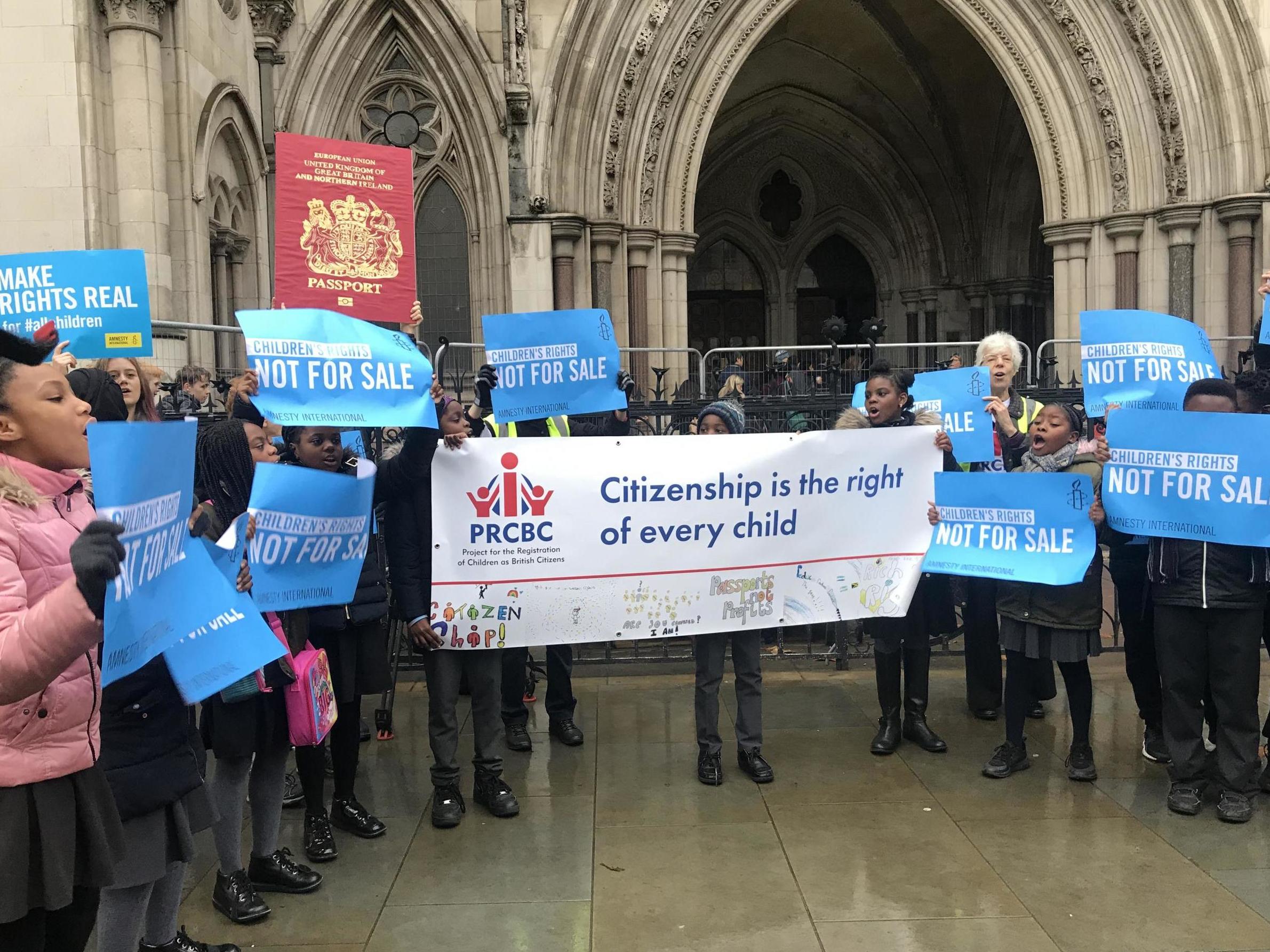'Exorbitant' Home Office fees blocking children from legal entitlement to British citizenship, court hears
Government challenged over 'unlawful' £1,012 fee for British-born children to obtain citizenship

Your support helps us to tell the story
From reproductive rights to climate change to Big Tech, The Independent is on the ground when the story is developing. Whether it's investigating the financials of Elon Musk's pro-Trump PAC or producing our latest documentary, 'The A Word', which shines a light on the American women fighting for reproductive rights, we know how important it is to parse out the facts from the messaging.
At such a critical moment in US history, we need reporters on the ground. Your donation allows us to keep sending journalists to speak to both sides of the story.
The Independent is trusted by Americans across the entire political spectrum. And unlike many other quality news outlets, we choose not to lock Americans out of our reporting and analysis with paywalls. We believe quality journalism should be available to everyone, paid for by those who can afford it.
Your support makes all the difference.The “exorbitant” fee the Home Office charges for child citizenship is blocking young people who have been in the UK for years from accessing their legal entitlement to become British, the High Court has heard.
In a major court case that opened on Tuesday, the Project for the Registration of Children as British Citizens (PRCBC) argued the £1,012 registration fee – charged for an application which costs the department just £372 to process – was unlawfully high.
The charity said many children who were born in the UK and have lived here for their first 10 years of life – making them eligible for citizenship – were prevented from applying because of the cost.
Figures obtained through freedom of information requests in April revealed the Home Office was making £2m a month from child citizenship fees, translating to £500,000 a week and £71,429 each day.
The government makes an estimated £640 profit from each child application it receives, and the fees are not refunded if the application fails.
Campaigners have long warned that young people whose families cannot afford the fees face being barred from attending university, missing out on job opportunities and being unable to build a life in the only country they know.
The court case, supported by Amnesty International UK, is being brought on behalf of two children – identified only as A and O – but the PRCBC said the outcome could affect tens of thousands of people in the UK.
Opening the PRCBC's case, Richard Drabble QC said the fee was “unaffordable” for a “large number of would-be applicants” who were entitled to British citizenship, who he said would “also be living in poverty, or with severely limited means”.
He told the court that setting the fee at £640 more than the administrative cost involved a “conscious decision to raise a sizeable surplus ... for use elsewhere in the immigration system", and that the £1,012 fee therefore effectively ”defeated the entitlement“ to citizenship.
He said both O, who is 12 years old, and A, three, were born in the UK and have lived here their entire lives.
In her evidence to the court, O spoke of her fear that her school friends would find out that she is ”not British like them“ and ”might not like me any more“.
Mr Drabble said children who were unable to register as citizens were ”deprived of the sense of identity, community and belonging that attaches to citizenship“, as well as the civil rights and secure immigration status that citizenship provides.
In written submissions, Sir James Eadie QC, for the Home Office, argued the entitlement to British citizenship was ”conditional upon payment of a fee and always has been - it is not an unconditional statutory right“.
Sir James said ”if any particular applicant is genuinely unable to pay the fee, their ability to acquire citizenship is not lost; it is postponed until they can".
He pointed out an amendment to the Immigration Act 2014 ”which would have achieved precisely what is sought by the claimants in the present claim“ was withdrawn following a debate in the House of Lords.
Sir James added that ”if the present challenge succeeds, the democratic process is liable to be subverted“, as opponents of the £1,012 fee ”will have achieved through the courts what they could not achieve in parliament“.
In a statement ahead of the hearing, PRCBC director Solange Valdez-Symonds said: ”Such barefaced profiteering from children by the Home Office is utterly shameful.
“Children's rights are not for sale. We hope the High Court challenge will rightly bring an end to this injustice.”
Mr Justice Jay will hear the case over three days and is expected to reserve his judgment.
Additional reporting by Press Association
Join our commenting forum
Join thought-provoking conversations, follow other Independent readers and see their replies
Comments